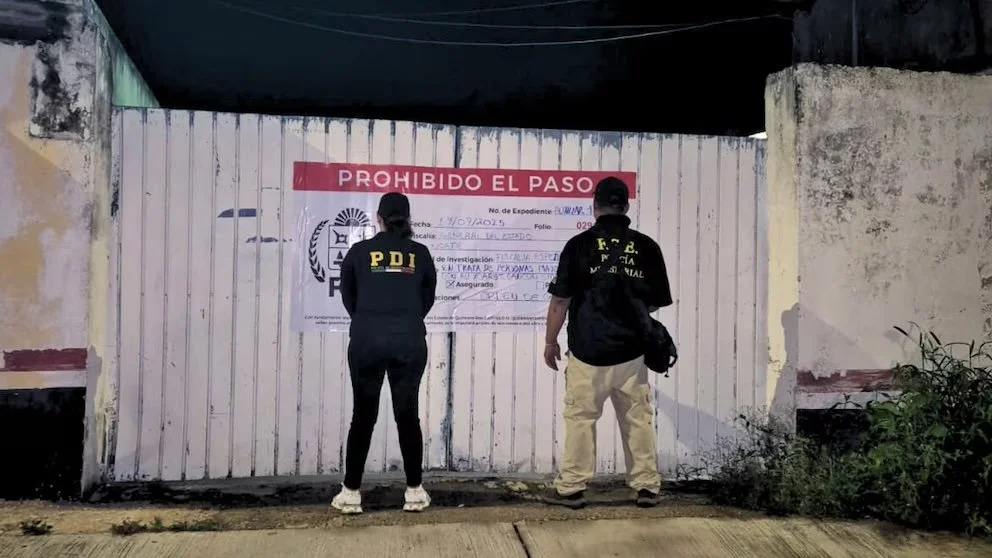5 women rescued from forced prostitution in Riviera Maya
Authorities carried out a raid in Felipe Carrillo Puerto, Quintana Roo.
Five women were found being forced into sexual services.
Victims were recruited under the guise of waitressing jobs.
Clients paid up to 1,000 pesos per half-hour, with profits split with the bar.
Police seized documents, cash, condoms, and surveillance equipment.
Authorities in Quintana Roo rescued five women who had been forced into sexual exploitation inside a bar in the municipality of Felipe Carrillo Puerto, as part of an operation targeting suspected human trafficking networks in the state.
The raid, carried out jointly by state and federal officers, took place at a bar located at the intersection of 61st and 78th streets in the town center. Officials reported that the establishment had long been suspected of serving as a front for human trafficking, where women were coerced into offering sexual services to clients.
Inside the premises, police located the five victims, who according to preliminary investigations had been lured to the job with promises of working as meseras-ficheras—waitresses who earn commissions by getting customers to buy drinks. Once hired, however, the women were pressured into sex work. Customers reportedly paid between 800 and 1,000 pesos (around USD $45–55) for a half-hour session, with the bar retaining 50 percent of the earnings.
The operation not only freed the women but also secured evidence crucial to the investigation, including documents, cash, a video recorder, and multiple packets of condoms. Authorities sealed the property and placed it under official custody pending the outcome of the legal process.
Quintana Roo’s State Attorney General’s Office (FGE) confirmed that the women will receive psychological and medical support under state victim-protection protocols. Investigators are now working to identify the individuals responsible for running the bar and profiting from the exploitation.
Human trafficking and sexual exploitation remain persistent problems across Mexico, particularly in tourist-heavy regions such as Quintana Roo, where the combination of international visitors, nightlife, and local economic vulnerability creates conditions that organized crime groups and unscrupulous bar owners exploit. According to anti-trafficking NGOs, women are often recruited with promises of legitimate employment before being trapped in cycles of coercion and abuse.
Felipe Carrillo Puerto, a mostly rural municipality in the center of the Yucatán Peninsula, is less known internationally than the resorts of Cancún, Playa del Carmen, or Tulum. However, advocates say that smaller towns like this often lack robust oversight, allowing trafficking operations to flourish away from the spotlight of major tourist hubs.
The Quintana Roo raid also comes amid broader national efforts to crack down on human trafficking. In recent years, Mexican authorities have faced international pressure to do more to combat exploitation, following reports from the U.S. State Department and United Nations agencies highlighting the country as both a source and destination for trafficking victims.
Local activists stress that while high-profile raids can bring immediate relief to victims, they must be followed by long-term support and systemic reforms. “Rescue is just the first step,” said a spokesperson for a Quintana Roo women’s rights group not directly involved in the case. “These women need protection, safe housing, and access to justice. Otherwise, the cycle of vulnerability continues.”
The FGE has said it will continue investigating the case, with prosecutors vowing to identify and bring charges against the bar’s operators. Officials added that all material collected during the raid has been handed over to the Public Ministry to strengthen the criminal investigation.
The five victims, meanwhile, are now under state care, as authorities coordinate with specialized agencies to ensure their rehabilitation and protection.




